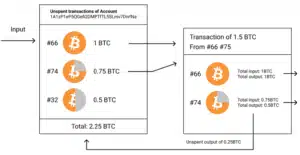Cyberthreats in Business: Is It Moral to Track Your Employees?

Whether working from an office or remotely using company-owned computer equipment, some of the software installed on the computer is likely intended to record the employee’s actions. From something as simple as checking the browsing history of web browsers to applications designed to control the screen time of employees, the truth is that the computer surveillance of companies towards their workers is a reality that is increasingly subject to debate.
Table of Contents
The Cybersecurity Argument
One of the main arguments used by companies to establish this type of control measure is that of cybersecurity. Suppose employees access inappropriate websites or download harmful content for the company. In that case, it is important to use a monitoring system that allows these behaviors to be detected and neutralize any possible cyber threat before it affects the rest of the equipment.
It makes sense on paper, but this argument can be easily decoded when you consider that it is also possible to restrict access to applications such as browsers, install antivirus software, download a VPN or an ad blocker, and take other protective measures for company IT equipment that do not require the use of a continuous surveillance system on employees.
The Productivity Argument
Another argument put forward by companies is productivity, especially when hiring employees to work by the hour. While it is true that a person who is paid to work for one hour may be required to devote that time to work and not to spend time on other things, it is also true that the convenience of paying workers is increasingly being demonstrated. Employees for achieving objectives, and not so much for their dedication to work for a series of hours.
In addition, in many cases, it can also happen that during specific moments there is simply no work. Suppose an employee’s job is to answer emails or a phone, and at some point, they’re done with those tasks and have nothing else to do. In that case, there doesn’t seem to be much point in denying them access to some websites for a few minutes or answering a personal email during office hours.
Monitoring outside office hours
In any case, what does seem clear is that monitoring outside of office hours is unethical, especially in cases where an excessive monitoring system is used, or there is access to the webcam of the devices being monitored. This type of control exceeds the limits of what is reasonable. However, there is still a certain legal vacuum surrounding this type of practice because remote working did not become a really widespread activity until the pandemic.
In this sense, the best option for employees is only to use company devices for work and never personal devices so that they can simply turn them off at the end of their day and avoid any type of monitoring of their personal life. These measures also contribute to keeping the line between personal and professional space well-defined, which is often difficult with remote work, especially for employees with less experience in this field.
In case of doubt, unions respond
Whenever any employee feels that the company records movements excessively on the devices an employee works with, unions can offer comprehensive advice to help them mark these limits more clearly. In this way, a better balance can be achieved between reasonable control of the productivity of a company’s staff and tremendous respect for their well-deserved personal privacy.








